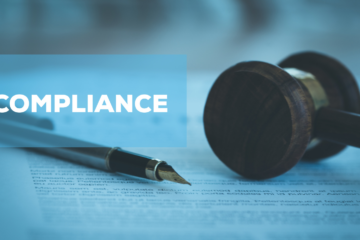Hey there, let’s talk about the Personal Data Protection Act Thailand (PDPA)!
So, the PDPA in Thailand is a pretty big deal. It’s all about protecting people’s privacy rights when it comes to their personal data. The law sets out clear rules for organizations that handle personal data, and it’s becoming increasingly important for businesses in Thailand, as well as foreign companies operating there.
The PDPA in Thailand is quite similar to the General Data Protection Regulation (GDPR) in the European Union. Both laws set high standards for how data is collected, used, stored, and processed. In this article, we’ll dive into how the PDPA has evolved, recent updates, and what businesses need to know to stay compliant.
Let’s Understand Thailand’s PDPA Framework Together
The Thailand PDPA is the country’s first comprehensive law dedicated to data privacy. Its main goal is to protect the personal data of Thai citizens and it brings some significant obligations for companies operating in Thailand or offering services to Thai individuals. Some key points include:
- Consent: Organizations need to get explicit consent from individuals before collecting or processing their personal data, with only a few exceptions.
- Data Subject Rights: People have the right to access, correct, and delete their data, as well as the right to withdraw consent and object to data processing.
- Data Protection Officer (DPO): Some organizations must appoint a DPO to ensure compliance with the PDPA and handle data protection matters.
- Data Breach Notifications: Businesses need to report data breaches to the authorities and affected individuals within 72 hours.
What’s New with the PDPA?
Since it came into effect, the PDPA has been updated to address new data protection challenges and align with global privacy trends. Here are some of the latest changes:
- Clearer DPO Requirements: Companies with large data processing activities or dealing with sensitive data must have a Data Protection Officer. Non-compliance can lead to hefty penalties.
- Data Minimisation and Security Measures: Businesses must have security measures that meet certain standards and only collect necessary data. This is in line with data minimization principles seen in other data protection laws.
- Cross-Border Data Transfers: The law now has additional safeguards for transferring data out of Thailand. Foreign companies must ensure that Thai data privacy standards are met by third-party processors.
- Enhanced Enforcement and Fines: There are strict penalties for non-compliance, with fines up to THB 5 million. Repeat offenses or major data breaches can even lead to criminal penalties.
These updates highlight the importance of taking a proactive approach to data privacy, especially for businesses dealing with a lot of data or sensitive information.
What Does This Mean for Businesses?
These changes affect all businesses in Thailand, as well as those outside the country catering to Thai citizens. Companies need to step up their data privacy game by building strong frameworks and proactive risk management strategies.
For businesses in Thailand, compliance means regular data privacy audits, clear privacy policies, and respecting data subject rights. Having a DPO or working with a data protection expert is crucial, especially for businesses handling a lot of data.
For foreign companies serving Thai citizens, PDPA compliance is a must due to the law’s extraterritorial reach. Non-compliance could lead to penalties, restrictions, and damage to reputation.
How Can Formiti Help Your Business?
Complying with the PDPA in Thailand can be tough, especially with the law evolving. Formiti Data International Ltd. offers specialized PDPA services to help businesses navigate these requirements. From assessments to policy development to DPO-as-a-Service solutions, Formiti has you covered.
For companies looking to streamline their data protection efforts, Formiti’s Outsourced DPO Service provides access to experienced professionals who can guide you through PDPA compliance efficiently.
Wrapping It Up
Thailand’s PDPA is a significant step towards safeguarding data privacy rights in the region. With recent updates, businesses need to ramp up their data protection measures and show accountability through DPO registration and strict compliance.
For businesses in Thailand or serving Thai citizens, staying on top of PDPA requirements is not just about following rules—it’s about building trust with customers. Partnering with Formiti ensures your business can meet compliance confidently, reducing risks and enhancing trust.
If you want to learn more about how Formiti can support your compliance journey in Thailand, reach out to us today!



